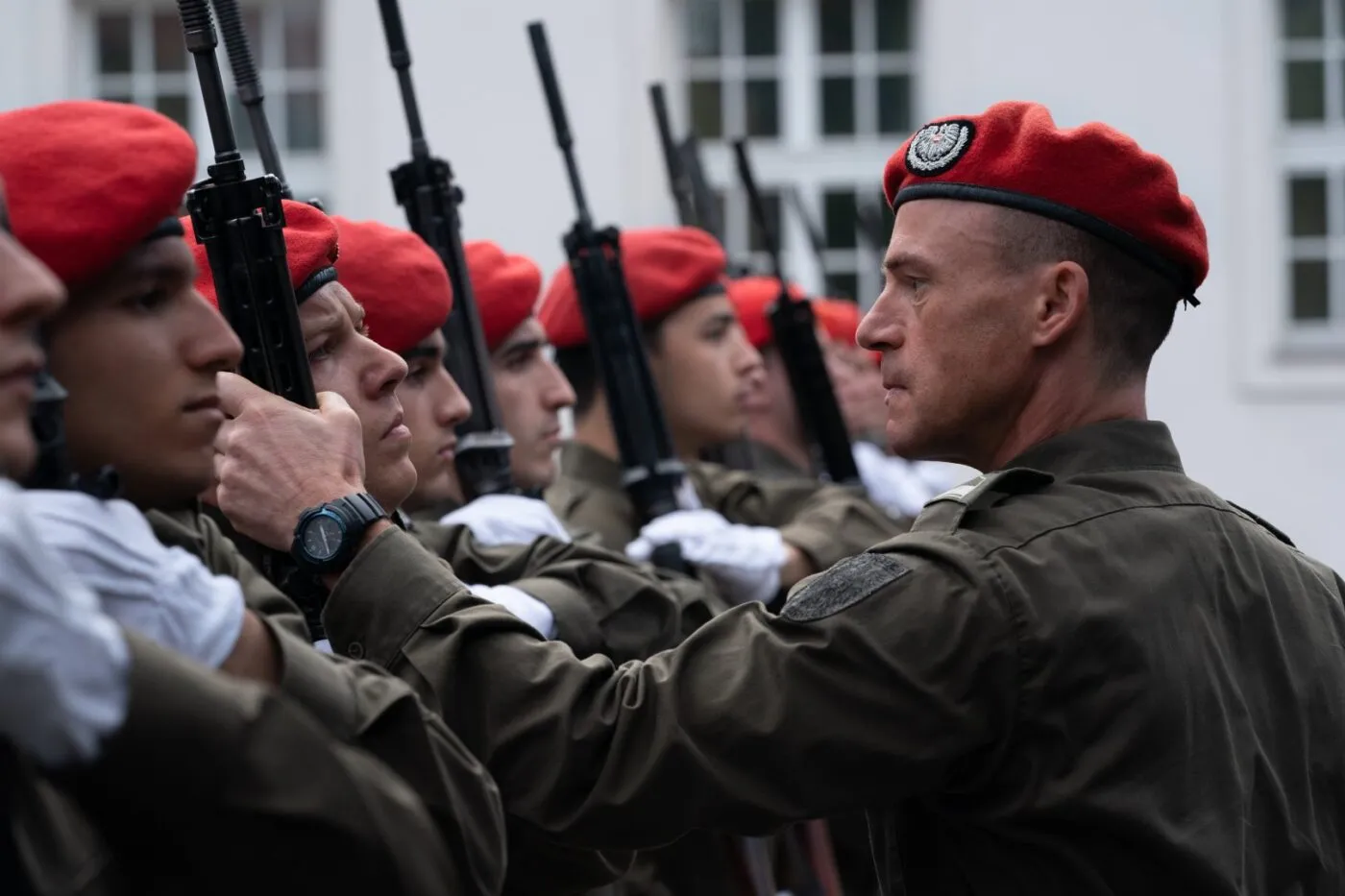
Eismayer is a gripping psychological thriller set in a high-stakes world of military discipline, power struggles, and the moral ambiguity that shapes the lives of its protagonists. Directed with precision and intense emotional depth, the film unravels the complex journey of its characters, exploring themes of loyalty, personal identity, and the personal toll that one’s profession can take on their soul.
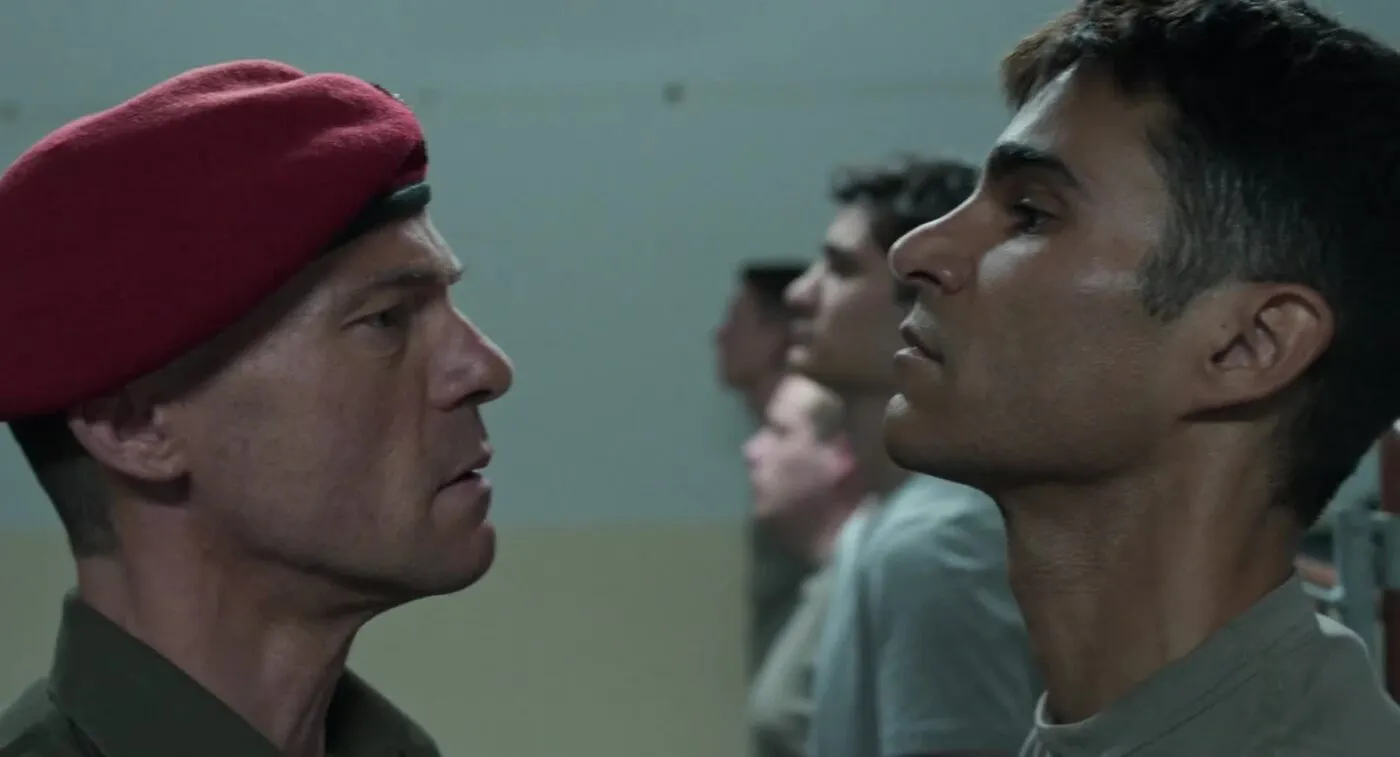
Plot Summary: The film follows two central characters, Eismayer and Devic, both military officers within an elite, secretive unit tasked with maintaining order through force. Eismayer, a highly respected but ruthless leader, is a man who commands loyalty through fear and displays no weakness. His reputation as a cold, efficient officer precedes him, making him a symbol of authority and control. However, beneath this exterior lies a personal battle that threatens to consume him.
Devic, a rising star within the unit, is Eismayer’s protégé. Initially drawn to his mentor’s strength and decisiveness, Devic begins to notice cracks in Eismayer’s armor—emotional fractures that hint at deeper vulnerabilities. As the story progresses, the relationship between the two grows complicated, leading to a series of events that push both characters to their breaking points.
The film’s conflict is heightened when a tragic event involving Karl, a member of the unit who has always looked up to both Eismayer and Devic, sets off a series of violent confrontations that challenge everything the characters believe about duty, honor, and friendship. The unit begins to unravel as loyalty is tested, and both Eismayer and Devic are forced to confront their inner demons, questioning their choices and what they truly stand for.
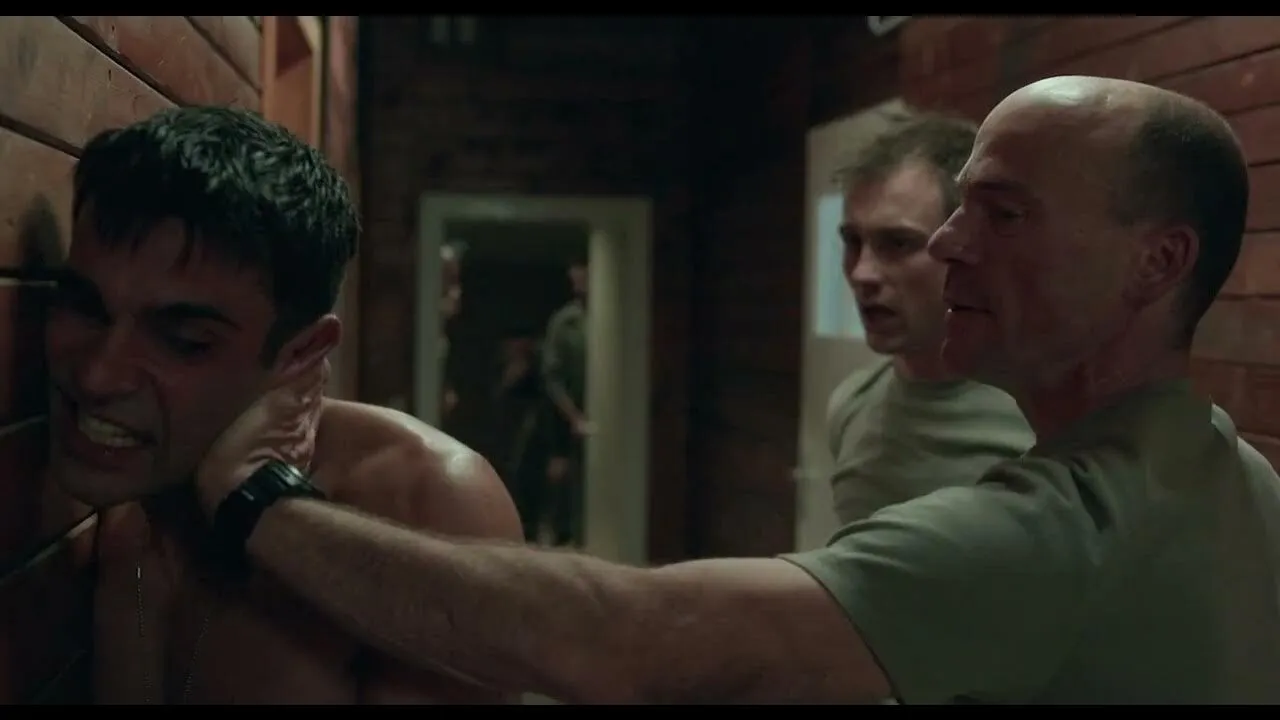
Artistic Analysis: Eismayer excels visually in its stark portrayal of military life, capturing the harshness of the environment and the cold precision of military operations. The film uses muted tones and gritty cinematography to evoke a sense of claustrophobia and tension, mirroring the internal turmoil of its characters. The tight, confined spaces of military bases, the intensity of training exercises, and the cold barracks where the soldiers live all add to the oppressive atmosphere that defines the narrative.
The film’s pacing is deliberate, allowing for moments of quiet introspection amidst the action. The slow build-up of tension in the first half of the movie sets the stage for an explosive second act, where the emotional stakes reach their peak. The action sequences, though sparse, are impactful, choreographed with a brutal realism that highlights the physical and psychological cost of the characters’ professions.
The soundtrack complements the atmosphere perfectly, with a minimalist score that builds unease and enhances the emotional weight of key scenes. The music doesn’t overpower the dialogue but instead amplifies the tension and emotional resonance of the characters’ struggles.
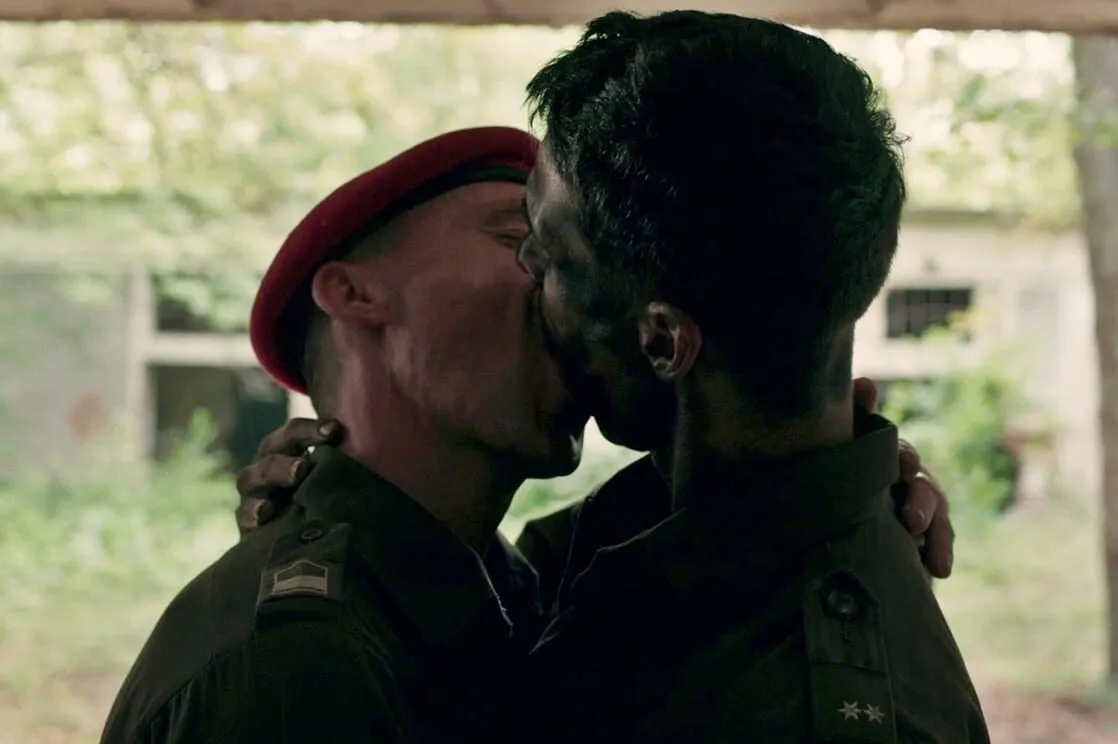
Performances: The performances in Eismayer are top-notch, with the leads—played by seasoned actors—delivering powerful, nuanced portrayals of characters who are both deeply flawed and deeply human. The actor playing Eismayer brings a chilling yet deeply vulnerable presence to the role, showcasing the internal battle between duty and personal pain. His transformation throughout the film is both heartbreaking and compelling, as he confronts his past actions and questions his identity as a soldier.
The portrayal of Devic is equally impressive. He evolves from a loyal soldier into a conflicted man who must grapple with the moral consequences of his blind devotion to Eismayer. His performance is layered, capturing the confusion, guilt, and disillusionment that arise as he faces the harsh realities of military life and the betrayal of his mentor.
Karl, played by a talented supporting actor, serves as a crucial catalyst for the story, and his tragic end sparks the film’s emotional crescendo. His portrayal is tragic and poignant, adding depth to the film’s exploration of the costs of war and duty.

Emotion: At its core, Eismayer is a deeply emotional exploration of power, loyalty, and sacrifice. The film dives into the psychological toll of military life, revealing how both soldiers and leaders struggle with their identities and moral compasses. Eismayer’s character, in particular, represents the duality of power: on the outside, he is an imposing figure, but internally, he is a man shattered by the very system he helps uphold. His inner conflict is palpable and offers the film’s emotional core, which drives much of the narrative forward.
The relationship between Eismayer and Devic serves as the emotional anchor of the film. Their mentor-mentee dynamic evolves into something much darker, as Devic’s growing disillusionment forces him to confront the harsh truths of his mentor’s character. The film masterfully portrays this emotional turmoil, building to a tense and tragic conclusion that will leave the audience reflecting on the cost of loyalty and the consequences of blind obedience.
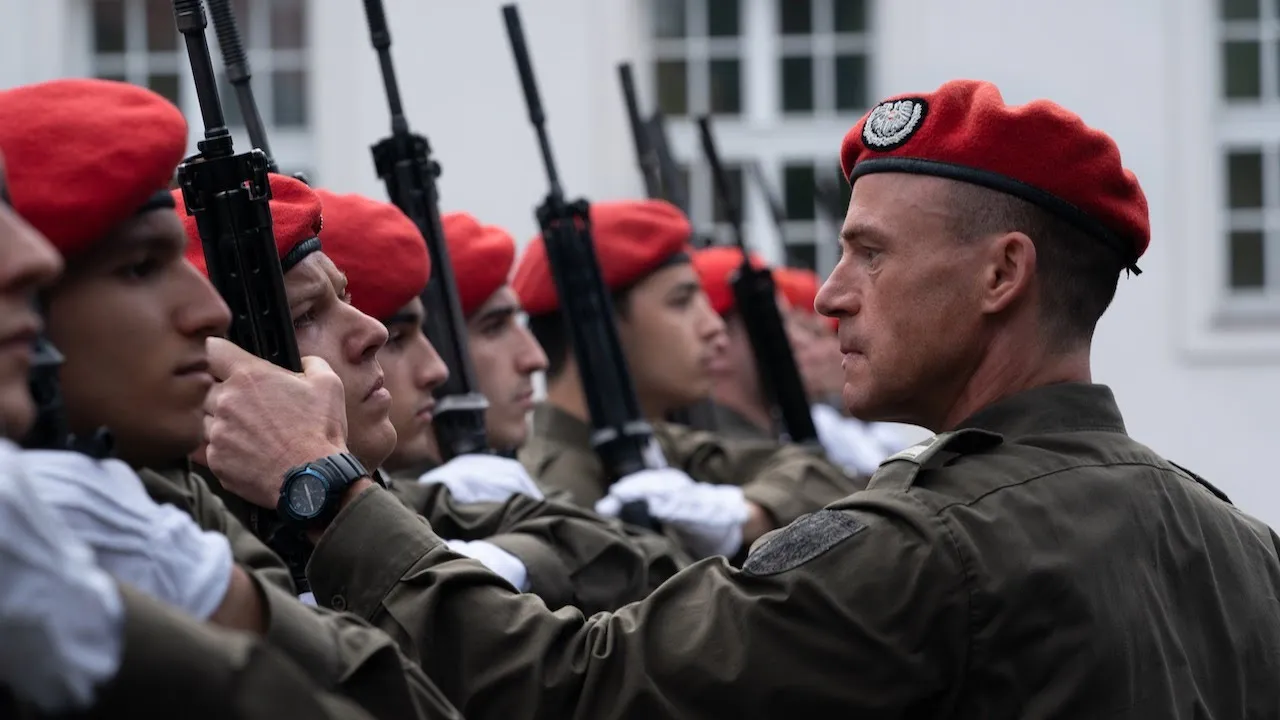
Final Thoughts: Eismayer is a deeply impactful and thought-provoking film that combines a gripping narrative with powerful performances and a haunting visual style. It explores the human cost of military life in a way that is both raw and honest, pushing the boundaries of what it means to serve, sacrifice, and survive. With its intense emotional depth, this film is not just a thriller—it is an exploration of the soul, challenging its characters to confront their deepest fears and regrets.
Through its stunning performances and expertly crafted storytelling, Eismayer will keep you on the edge of your seat, drawing you into a world of moral complexity and intense personal drama. It’s a must-watch for anyone who appreciates films that tackle difficult themes with authenticity and emotional resonance.